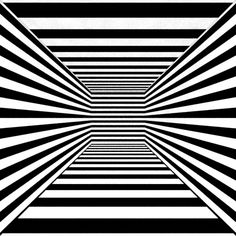|
LITR 4368 Literature of the Future |
Sample answers
for Essay 1:
|
 |
Oneydy Alonzo
The Self and the Other vs.
Community and Nature
In
the beginning of the course, I learned about the different narratives futuristic
literature can have. From millennialism, to evolution, to alternative futures, I
have found that literature can have many different types of stories that
describe individual or national origins, struggles, and goals. In the second
part of the semester, I learned that there are also scenarios that are
incorporated in literature of the future. As it is mentioned in the course
terms, “scenarios can involve narratives, but scenarios more explicitly involve
settings, characterization, and emotional or audience dynamics.” More
specifically, these typical visions of the future are alien contact, low & high
tech, utopia/dystopia and ecotopia. I have decided to compare and contrast the
two scenarios that I enjoyed reading the most: ecotopia and alien contact
The term Ecotopia is defined as an ecological utopia
where a community whose collective social health imitates nature’s
interconnectivity. The term nature is synonymous to earth, the only place where
human life is proven to exist. Ecotopian societies have a high regard for
primitive human accomplishments and value human connectedness and unity. On the
other hand, the scenario of alien contact, has no connection to nature or the
earth, and instead connects us to an unfamiliar outside world with endless
possibilities. The key theme in alien contact scenarios is that of exploration
of the unknown and unlike ecotopias that embrace unity of cultures, alien
contact embraces the dialogue of the self and the other.
In the story titled,
The Poplar Street Study, the self and
the other is depicted with dialogue that shows how humans see aliens and vice
versa. In the story, aliens have altered the social environment of a small
neighborhood and possibly the earth. They use humans as guinea pigs in an
unexplained experiment. Throughout the story, we see that the older people in
the neighborhood resist change and cannot adapt. Instead, they try to find ways
to escape, but to no avail. They try to resist the new forced way of life, but
eventually give in. The people of earth saw the aliens as disgusting and evil.
The earthlings (the self) feel that the aliens (the other) could never see a
common ground. The humans see themselves as elevated, which dehumanizes and
degrades the other. Surprisingly, the aliens also see themselves as elevated and
feel that it is their duty to fix these savage humans. In the essay titled,
Aliens saving the human race from
themselves, Rebecca Dyda writes, “Ultimately the Aliens in the Poplar street
study take a civilization from what seems like a “corrupted” world to them, and
transforms the humans into who they believe they should be.”
Just like in
Poplar Street, the story They’re Made
Out of Meat has a similar dialogue of the self and the other. In this story,
we find that aliens see us as so vile that they do not even want to waste their
time communicating with us. In this entertaining short story, we find two aliens
having a conversation about the human race. They seem shocked that meat has the
ability to create cool gadgets and exist independently. They see themselves as
superior beings that will always be ahead of us in technology and travel. “They
can travel to other planets in special meat containers, but they can’t live on
them. And being meat, they can only travel through C space” (Virtually Now, 71).
Instead of abiding by the laws they have set to make contact with us, they
decide to erase all memory of us from their systems and move on to more
important discoveries in the universe.
In contrast with the dialogue of the self and the other,
we find that ecotopias involve community and the reliance of unity in order to
survive. In the story, Chocco we find
that the human race has turned to a more primitive lifestyle. One that relies on
the connection of humanity and the earth. As mentioned in the terms for this
course, “ecotopian scenarios show earth as humanity's home and is not to be
fled, but sustained.” Although aliens are not mentioned in the story, the
characters mention that the machine people, their ancestors “lived alienated and
detached lifestyles…and regarded individuals as of primary importance and though
only of themselves” (Future Primitive, 203). They lacked the unity that the
people of Chocco believe is the key to survival and that is why the machine
people are no more. As mentioned in the course terms, ecotopias thrive on a life
more connected to the dirt, blood, and sweat from which the human species
evolved.
Similar to Chocco,
House of Bones’ scenario is ecotopic. The story tells of a man that was
taken in by a tribe. This tribe puts this ‘lone wolf’ on a journey to capture a
strange being lurking around their territory. Dyda writes, “He finds very deep
human qualities within this Scavenger Man.” This outsider reminds him a lot of
himself before he was taken in. This uninvited guest was alien to the tribe and
the protagonist assumed that the tribe wanted him to kill the scavenger man.
Fortunately, he could not put himself to do it because of the commonalities he
had with this outsider. In the ecotopian scenario, the protagonist is commonly
seen as a visitor or outsider who may visit for ulterior motives and defends
outside world. The main character was trapped in this world with no one and
nowhere else to go. He missed his home, but did not have a way to get back. He
was hungry and tired and although he was different, the tribe took him in. The
protagonist joined because he needed to survive, but his life was changed. The
protagonist passed the tribes test by showing empathy for the stranger just like
the tribe did for him. They decided to officially make him part of the tribe.
The value of unity as a tool for survival is once again seen as an important
theme of ecotopian scenarios.
Both alien contact and ecotopian scenarios were
fascinating and entertaining to me. I enjoyed the mystery of alien contact, but
I also enjoyed the didactic plots of the ecotopian scenarios. I feel they both
are intriguing to readers because they give us depictions of a future a long
time from now. With new discoveries each day, I can see how we can advance to a
point where we could come in contact with aliens, but I can also see how the of
the advancements of technology may create a world where humanity must rely on
more primitive ways to survive.


